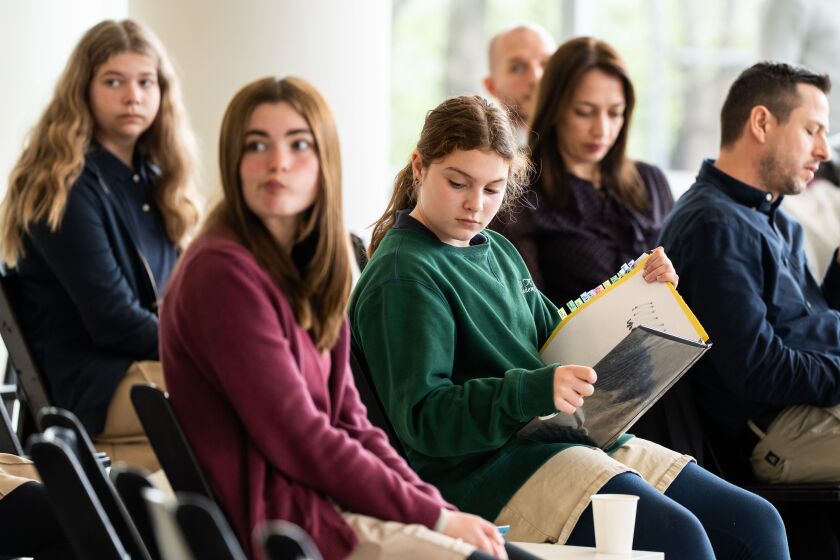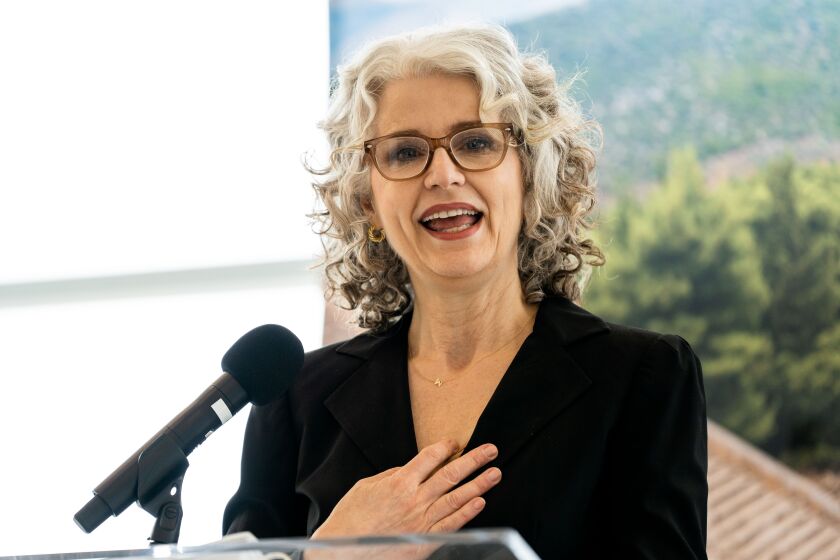Robert Wittmer is only 14, but he’s already read Homer’s “Odyssey” four or five times.
The Plato Academy eighth grader gets nostalgic talking about the 3,000-year-old epic poem, which follows the warrior Odysseus’ journey home after the Trojan War.
“This is my last year, and I’m going on to high school,” Robert said. “I was proud to read it again because it’s kind of like a tradition at my school.”
The “Odyssey” is special to him, he said, because of its connection to his Greek heritage — and the monsters, battles and adventure on the high seas don’t hurt either.
Friday morning, Robert and his classmates stood in a single file line as they anxiously awaited their turns to read passages of the “Odyssey” aloud at the National Hellenic Museum’s second annual “Homerathon.”
The public reading of all 24 books of the epic poem is hosted in partnership with the University of Illinois Chicago. The event spans 13 hours on Friday and Saturday and features around 200 volunteer speakers reading passages in English, Greek, Spanish and Arabic.
The middle schoolers giggled and wrung their hands as they prepared to deliver three-minute passages. Lillie Vogdanos, 13, said she played with a hair band on her wrist to calm her nerves as she waited her turn to read a passage in Greek.
Students from Plato Academy in Des Plaines studied the “Odyssey” for three months leading up to the event, said teacher Chris Kruger. Other speakers Friday included students from Koraes Elementary School in Palos Hills, UIC students, members of the community and even a local politician.
Mariyana Spyropoulos, who serves on the Metropolitan Water Reclamation Board of Commissioners, read a passage from the first book of the “Odyssey.” She was proud to represent her Greek-American heritage, she said.
The “Odyssey” is attributed to the legendary blind poet Homer and was told orally for centuries before being written down.
That’s why reading the poem aloud in a public setting is “the way it is supposed to be heard,” Marianne Kountoures, executive director of the museum, said in her opening remarks.
The museum, at 333 S. Halsted St. in Greektown, is “an anchor” for the Greek community in the Chicago area, Kountoures told the Sun-Times later. But, she added, she wants it to feel welcoming for people of all backgrounds.
“It’s important for us in our work to identify those universal themes that every ethnic group can relate to,” Kountoures said. And some of those themes — mortality, friendship, love and homecoming — are at the poem’s core, she said.
Kruger said he’s enjoyed watching his students “realize how this 3,000-year-old book is still a relevant story.” Krishni Burns, a senior lecturer at UIC, said she isn’t surprised it captured Kruger’s students’ attention.
“How can it not be relevant to younger people?” Burns said. “Like Odysseus, they’re trying to come to terms with everything they need to face as adults.”







